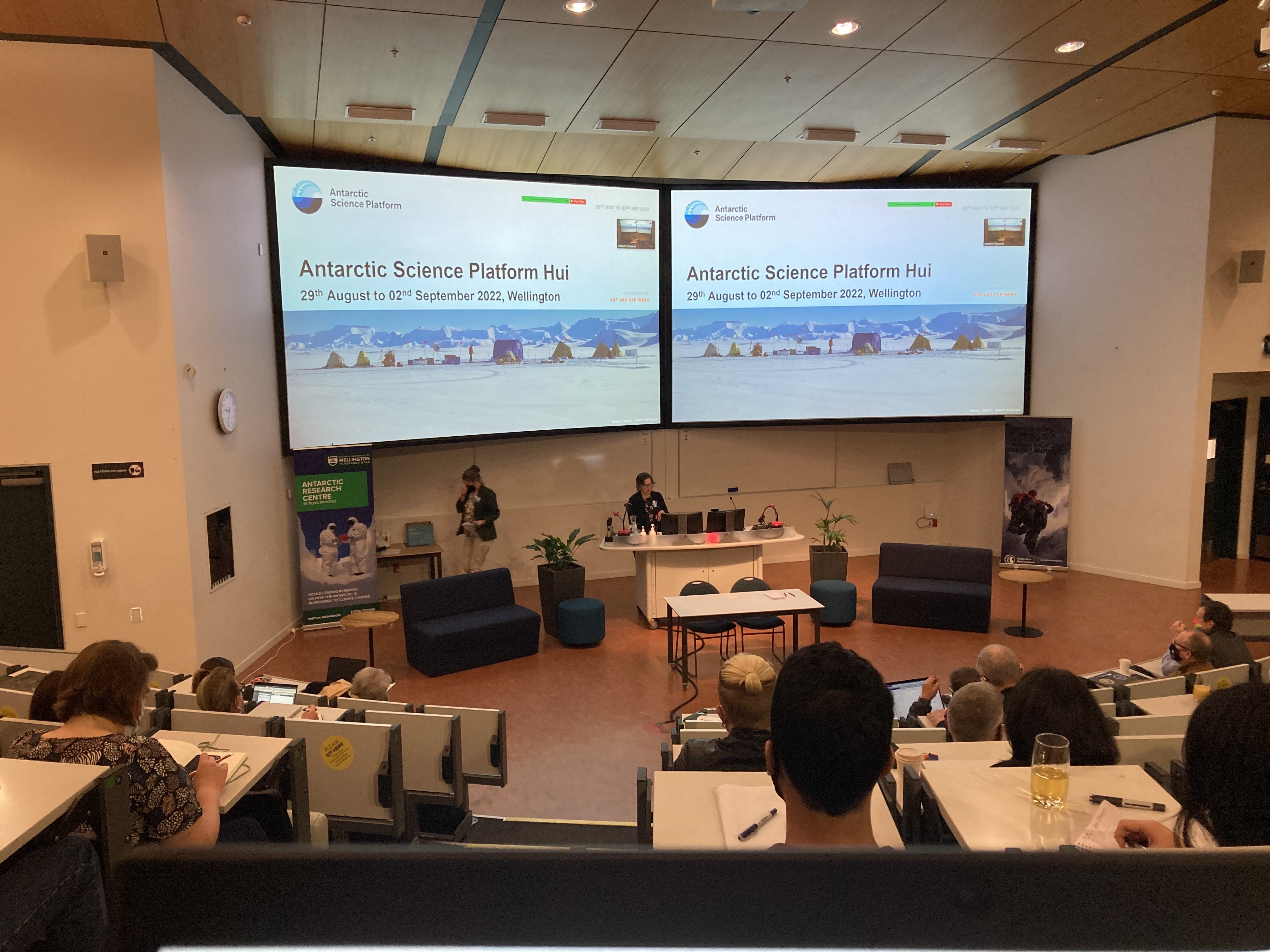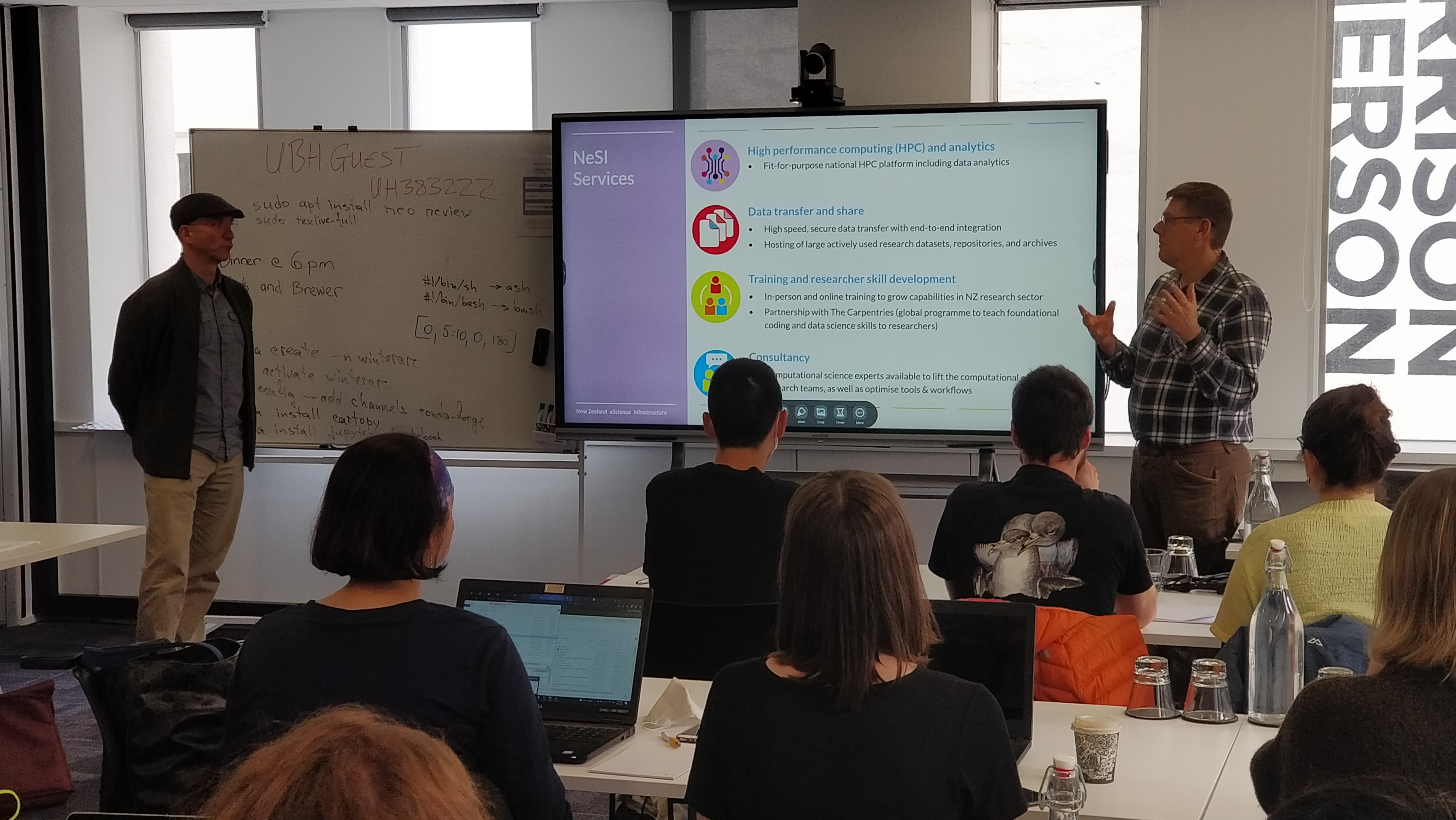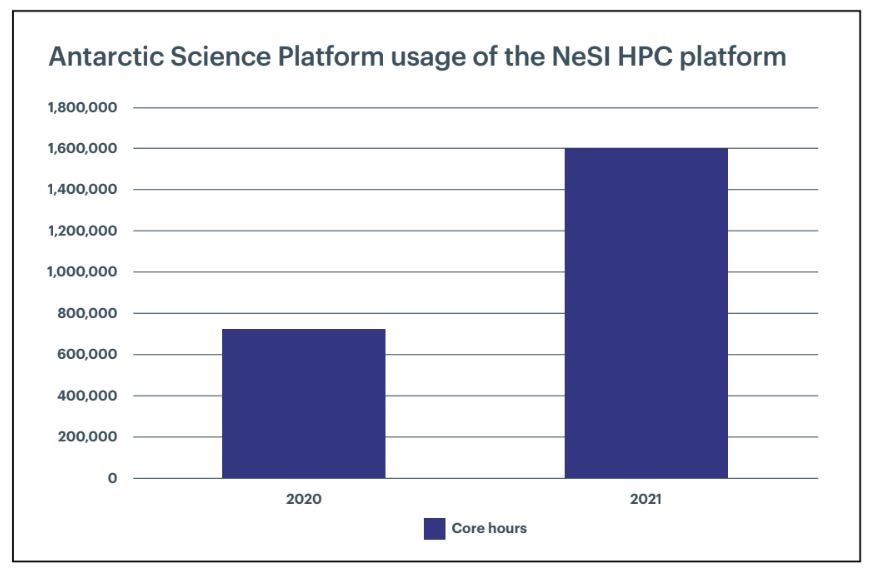Powering data-intensive research challenges as their needs evolve
As scientists witness Antarctica's ecosystems grappling with a warming climate, Aotearoa New Zealand's Antarctic Science Platform (ASP) is playing a critical role in national efforts to better understand, prepare for, and respond to climate change challenges.
Backed by the Government’s Strategic Science Investment Fund, ASP coordinates the efforts of over 100 scientists investigating how climate change will affect Antarctica, and what the consequences for New Zealand and the rest of the globe will be. NeSI's high performance computing (HPC) platform powers projects within ASP's national modelling hub, enabling ASP modellers to create improved forecasts and develop new tools that support different models (such as ice sheet, ocean, atmosphere or sea ice models) interacting and informing each other.
Earlier this month, the ASP's ecosystems research programme hosted a multi-day hui in Wellington. NeSI team members attended, using the opportunity to connect with the community and learn more about their projects' insights and impacts.
"It was a great opportunity to understand the researchers' ways of working – from the tools they need to process and analyse complex datasets, to the national and international collaborations they're involved in – and how that work is informing important science policy and environment protection," said Georgina Rae, NeSI Science Engagement Manager.

The week following the conference, ASP's Future Projections Expert Group hosted a 'Winter School' featuring a mix of lecture-style presentations and tutor-guided practical sessions on numerical modelling, data analysis, and computational techniques for Earth and climate sciences.
This was another valuable opportunity to connect with ASP researchers, particularly postgraduate students looking to build their computational skills, so NeSI was pleased to be invited to deliver a brief overview and demo of using NeSI HPC facilities. Alexander Pletzer, Research Software Engineer, and Wes Harrell, Application Support Specialist, from NeSI hosted the session and answered questions.

If any ASP researchers missed NeSI's Winter School session, you can get a similar overview and tips for getting started on NeSI HPC systems by attending our weekly online Introductory Sessions. Our Support Team is also available to answer questions anytime via support@nesi.org.nz or at our weekly Online Office Hours.
Research projects connected to the Antarctic Science Platform (ASP) modelling hub began using NeSI in August 2020. Since getting onto NeSI platforms, ASP projects’ usage of core hours has continually increased, powering parallelised numerical ice sheet models and researchers building, compiling and running simulations.

Thank you ASP community for welcoming us to your recent hui and Winter School. We look forward to continuing to power your research.
Recent case studies of ASP projects using NeSI resources:
- Improving research approaches to predicting sea level rise
- Understanding the impacts of future warming in the Antarctic
- Searching for new insights into atmospheric processes and interactions





